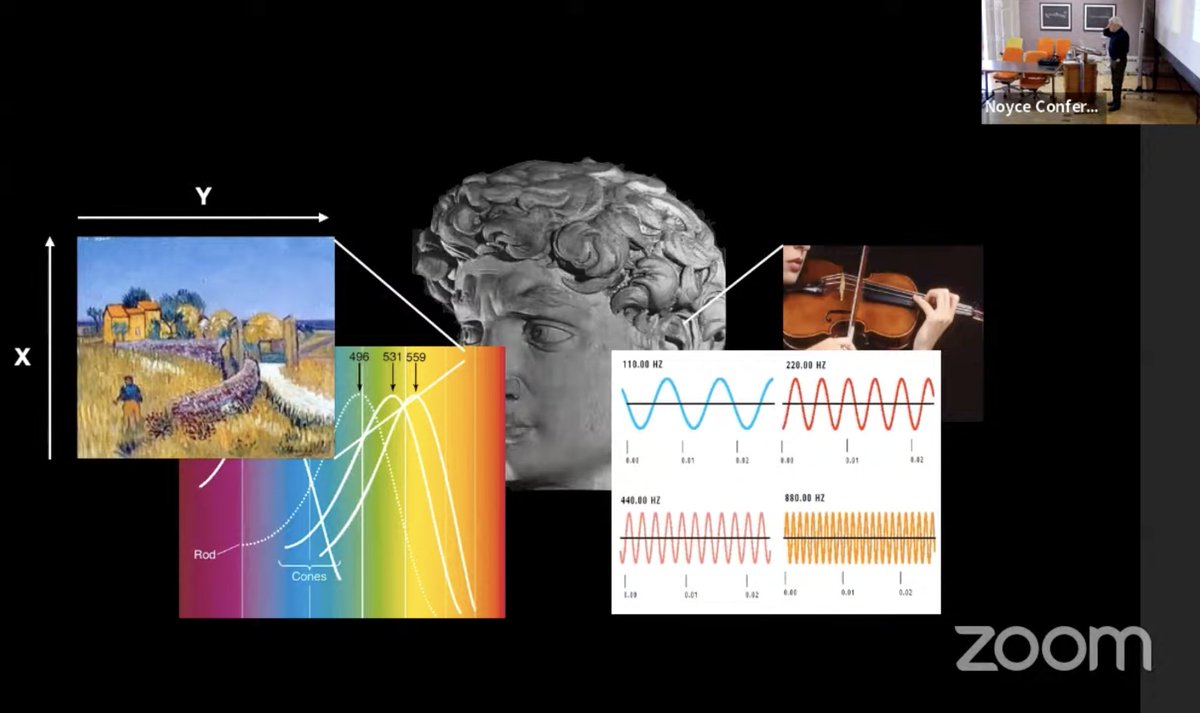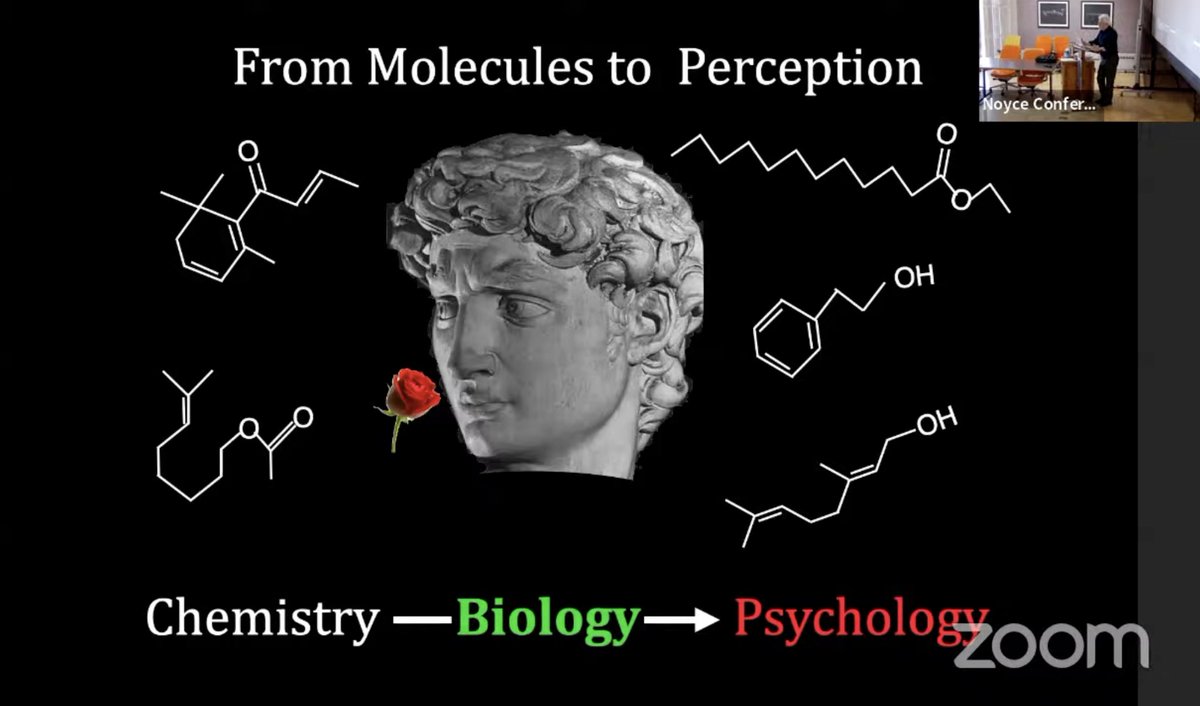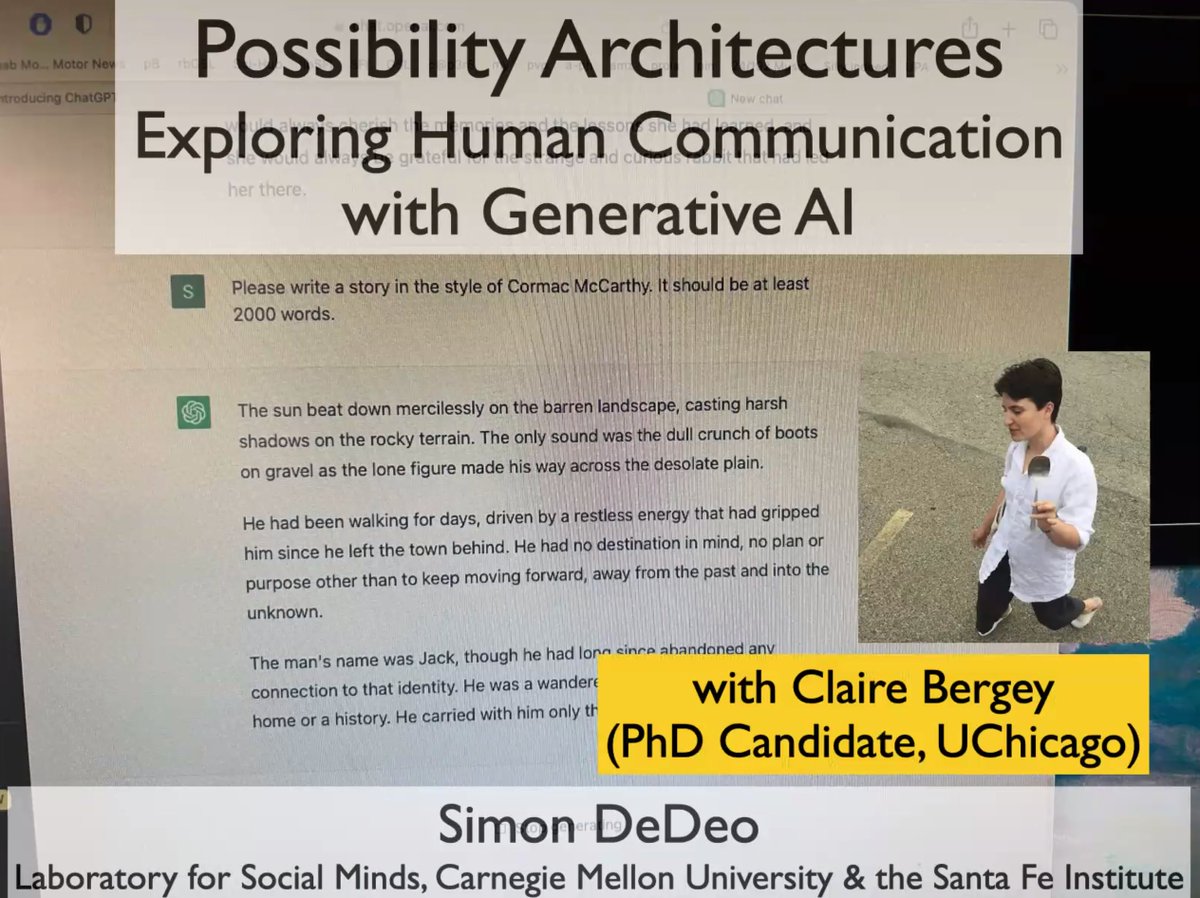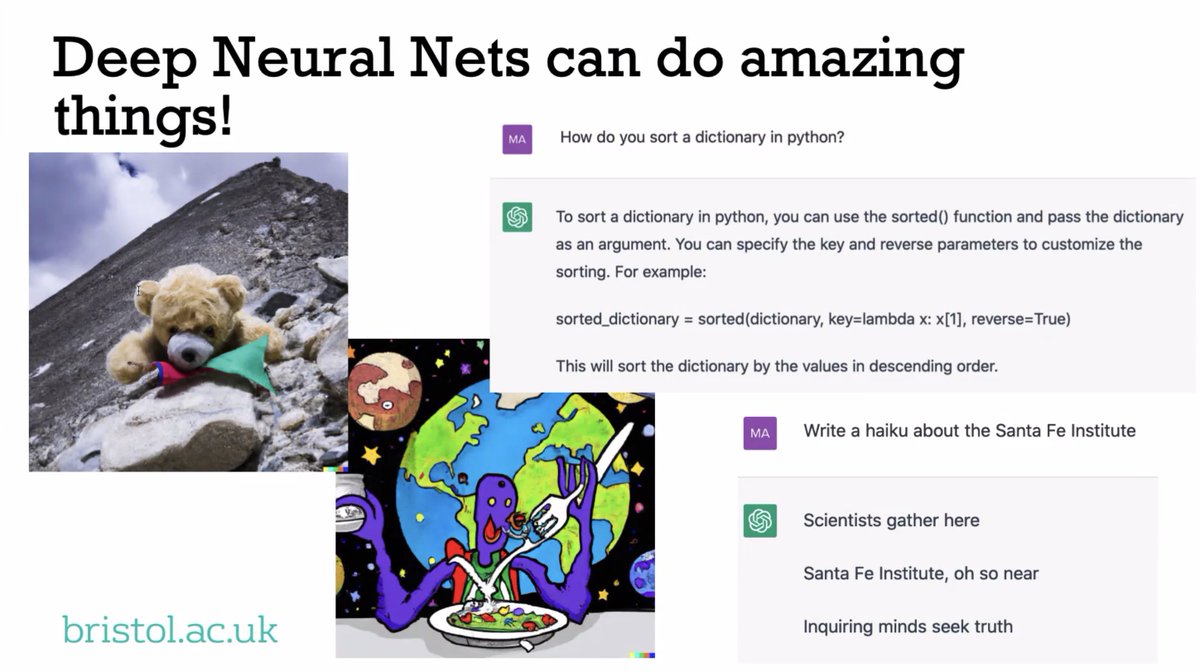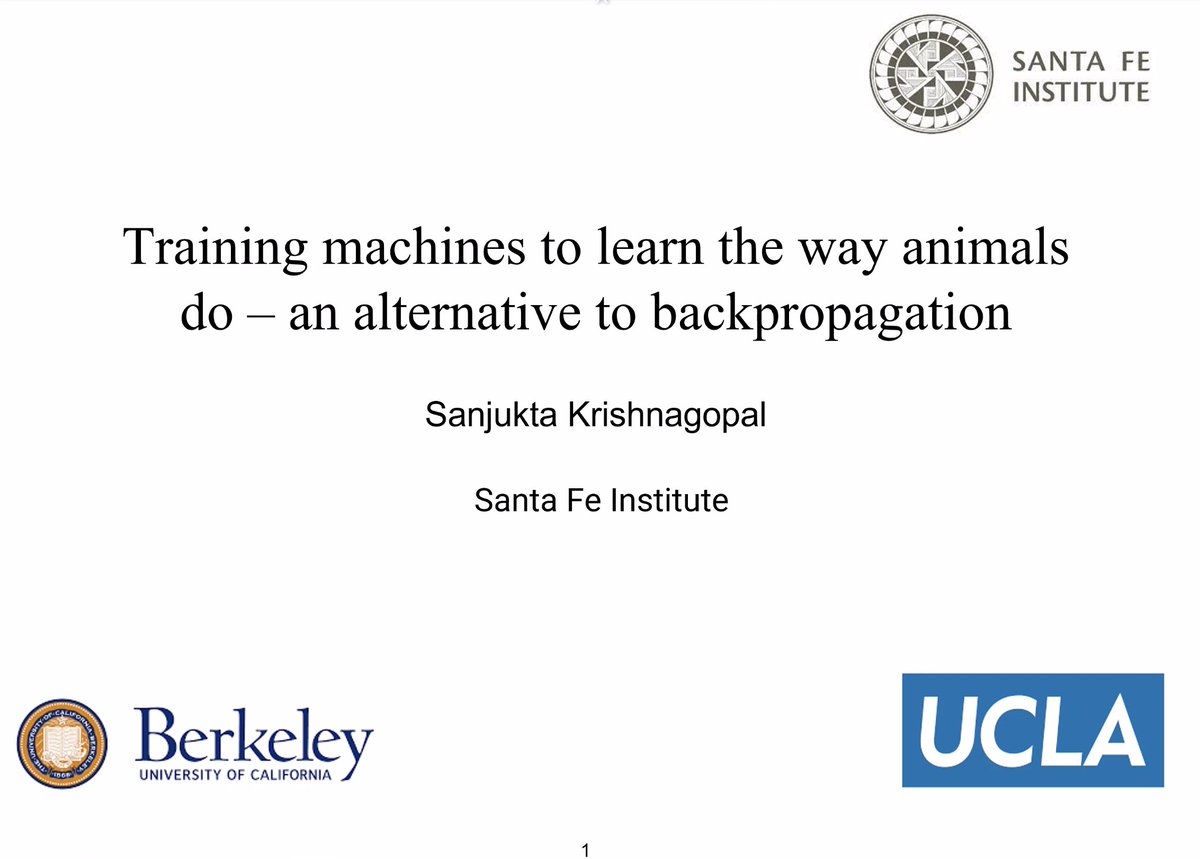"We evolved to be physically active. But most of us avoid physical activity."
The Active Grandparents Hypothesis
Daniel Lieberman, @Harvard
SFI Colloquium, streaming now:


The Active Grandparents Hypothesis
Daniel Lieberman, @Harvard
SFI Colloquium, streaming now:


"We evolved from #apes and apes are couch potatoes."
Daniel Lieberman, @Harvard
SFI Colloquium, streaming now:
#evolution #hominin #anthropology #physiology



Daniel Lieberman, @Harvard
SFI Colloquium, streaming now:
#evolution #hominin #anthropology #physiology

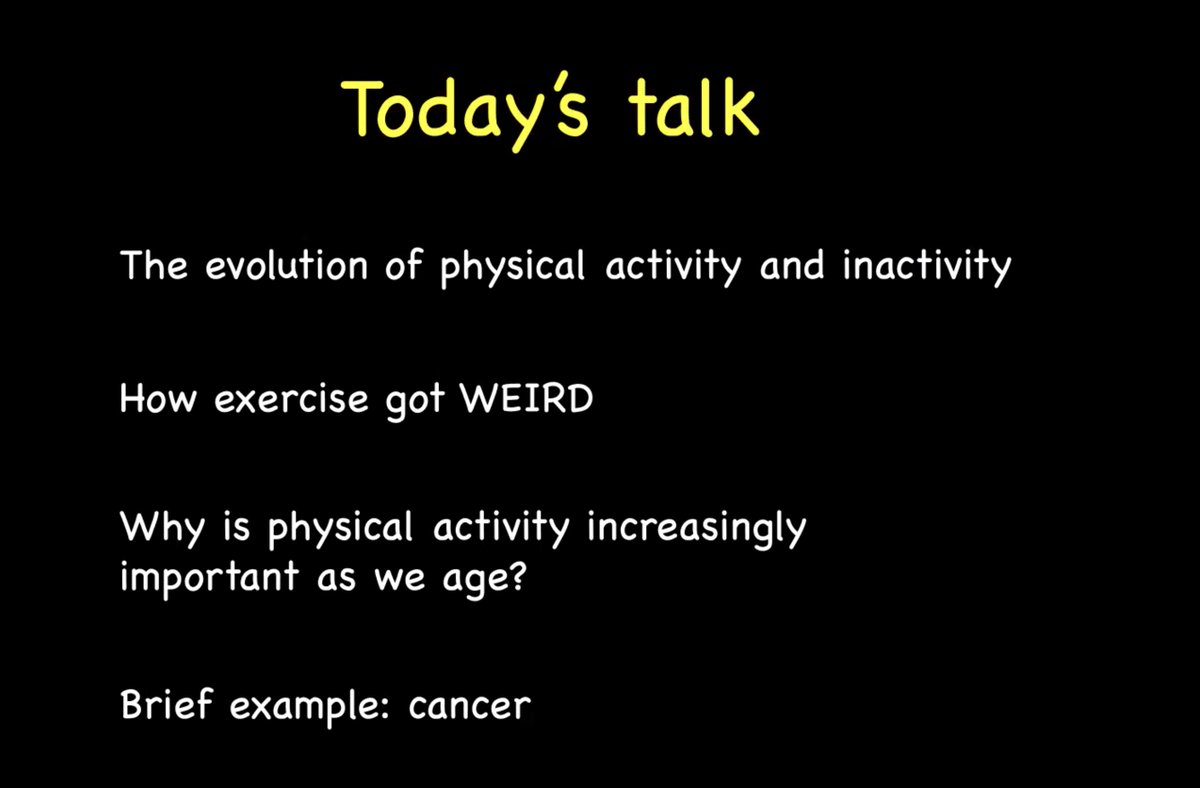


"Your average hunter-gatherer walks from New York to LA every year."
Daniel Lieberman, @Harvard
SFI Colloquium, streaming now:




Daniel Lieberman, @Harvard
SFI Colloquium, streaming now:




"The Hadza sit about as much as we do, but they sit a little bit differently..."
Daniel Lieberman, @Harvard
SFI Colloquium, streaming now:


Daniel Lieberman, @Harvard
SFI Colloquium, streaming now:


"It makes sense to take it easy, because energy in these populations is limited."
Daniel Lieberman, @Harvard
SFI Colloquium, streaming now:



Daniel Lieberman, @Harvard
SFI Colloquium, streaming now:

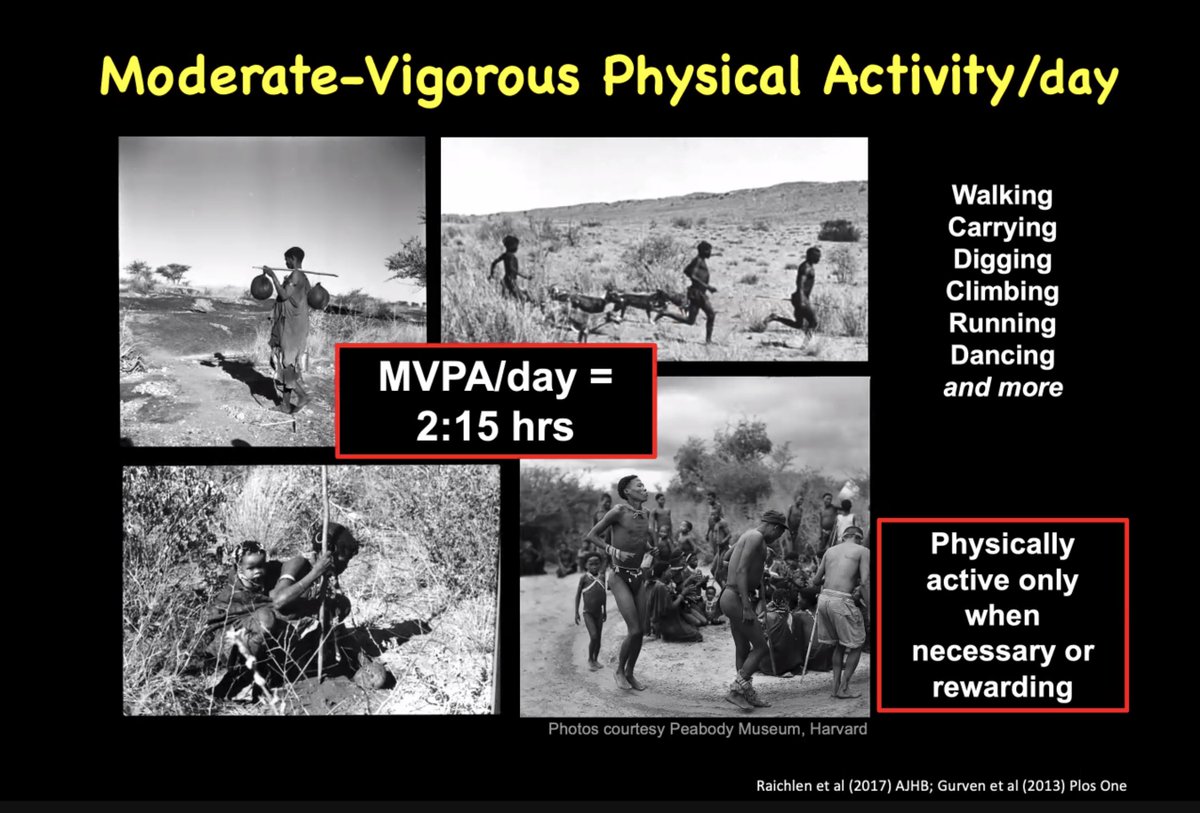

"We have a very limited and biased view of what's normal..."
"In high-income countries, there's been a drop of caloric expenditure of 25%. And so we invented #exercise."
Daniel Lieberman, @Harvard
SFI Colloquium, streaming now:




"In high-income countries, there's been a drop of caloric expenditure of 25%. And so we invented #exercise."
Daniel Lieberman, @Harvard
SFI Colloquium, streaming now:




"Imagine explaining to your great-great grandparents that you spent money on a treadmill. And in fact the modern version of a #treadmill was invented for prisons."
Daniel Lieberman, @Harvard
SFI Colloquium, streaming now:
#health #exercise #evolution


Daniel Lieberman, @Harvard
SFI Colloquium, streaming now:
#health #exercise #evolution

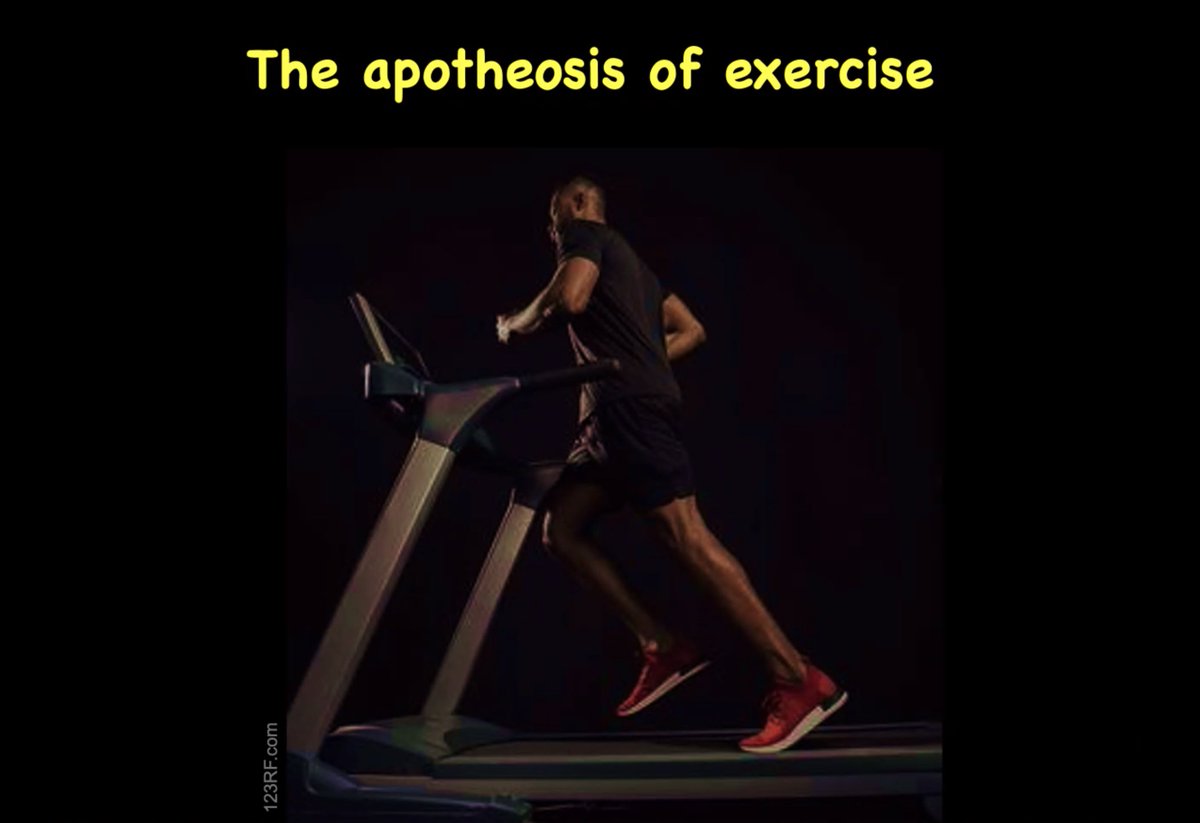
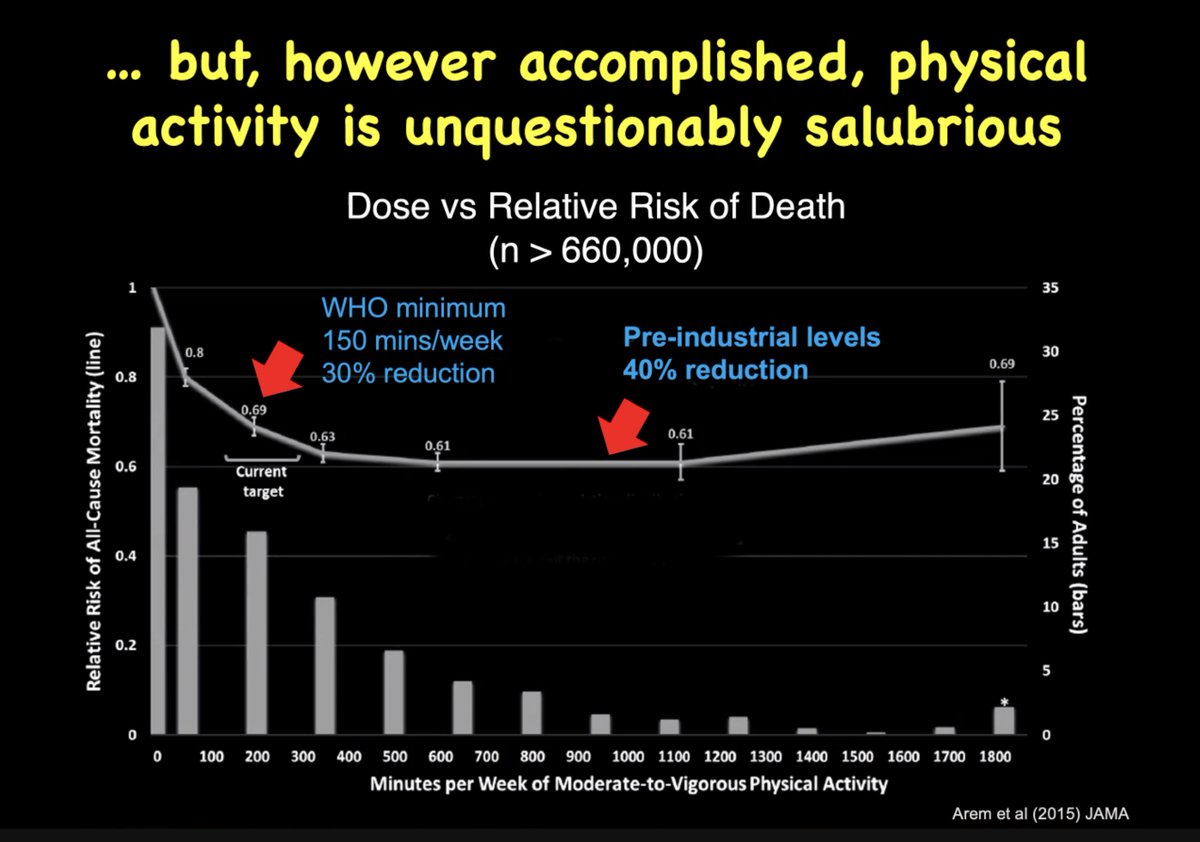
"This has been replicated over and over again: there's no question that as you get older, the benefits of physical activity get more substantial."
Daniel Lieberman, @Harvard
SFI Colloquium, streaming now:


Daniel Lieberman, @Harvard
SFI Colloquium, streaming now:


"Very very few #chimpanzees in the wild live past the age of 30-40 years old...but the average #HunterGatherer lives between 68-78 years, with a long post-reproductive period."
Daniel Lieberman, @Harvard
SFI Colloquium, streaming now:



Daniel Lieberman, @Harvard
SFI Colloquium, streaming now:



"In human beings, we have intergenerational transfers of energy and information from grandparents to their grandchildren...but measuring that turns out to be a challenge."
Daniel Lieberman, @Harvard
SFI Colloquium, streaming now:
#lifespan #healthspan


Daniel Lieberman, @Harvard
SFI Colloquium, streaming now:
#lifespan #healthspan



@Harvard "We think it's a big triumph: we get to live longer because of technology, but you get diabetes or heart disease, etc. But it's not true. This led to the Active Grandparent Hypothesis."
Daniel Lieberman, @Harvard
SFI Colloquium, streaming now:

Daniel Lieberman, @Harvard
SFI Colloquium, streaming now:

"You can see that female hunter-gatherers are in a deficit until they become grandparents. They consume more than they produce. You can see this also in males."
Daniel Lieberman, @Harvard
SFI Colloquium, streaming now:

Daniel Lieberman, @Harvard
SFI Colloquium, streaming now:

"One way to think about this is 'exercise makes you less fecund.' But another way is, 'when you exercise, your body thinks things are going well, time to reproduce.'"
Daniel Lieberman, @Harvard
SFI Colloquium, streaming now:



Daniel Lieberman, @Harvard
SFI Colloquium, streaming now:



@Harvard "Physical activity diverts surplus energy to storage."
"What's NOT being debated is how much exercise prevents weight GAIN."
Daniel Lieberman, @Harvard
SFI Colloquium, streaming now:

"What's NOT being debated is how much exercise prevents weight GAIN."
Daniel Lieberman, @Harvard
SFI Colloquium, streaming now:
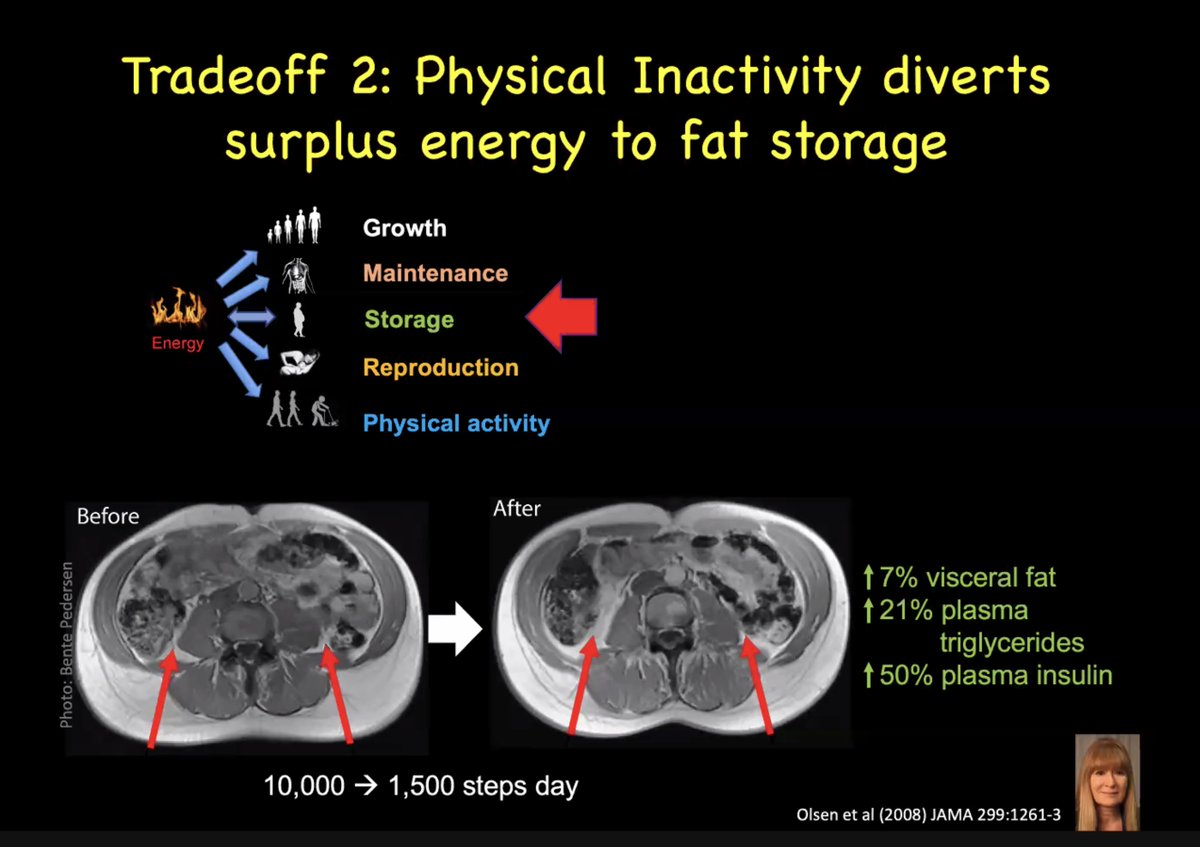
"It turns out that muscle is a very active inflammatory barrier. When you turn on #muscle, you turn off #inflammation."
Daniel Lieberman, @Harvard
SFI Colloquium, streaming now:
#cytokines
Daniel Lieberman, @Harvard
SFI Colloquium, streaming now:
#cytokines

"Every physiological process you can think of is stressed by physical activity. But for every one of these, there's a well-known #repair mechanism."
Daniel Lieberman, @Harvard
SFI Colloquium, streaming now:
#exercise
Daniel Lieberman, @Harvard
SFI Colloquium, streaming now:
#exercise

"#BDNF evolved in muscle. It was only later that it was subsumed by the brain to promote and maintain #neurons."
"The vast majority of energy spent in #exercise is turning on repair mechanisms."
Daniel Lieberman, @Harvard
SFI Colloquium, streaming now:



"The vast majority of energy spent in #exercise is turning on repair mechanisms."
Daniel Lieberman, @Harvard
SFI Colloquium, streaming now:
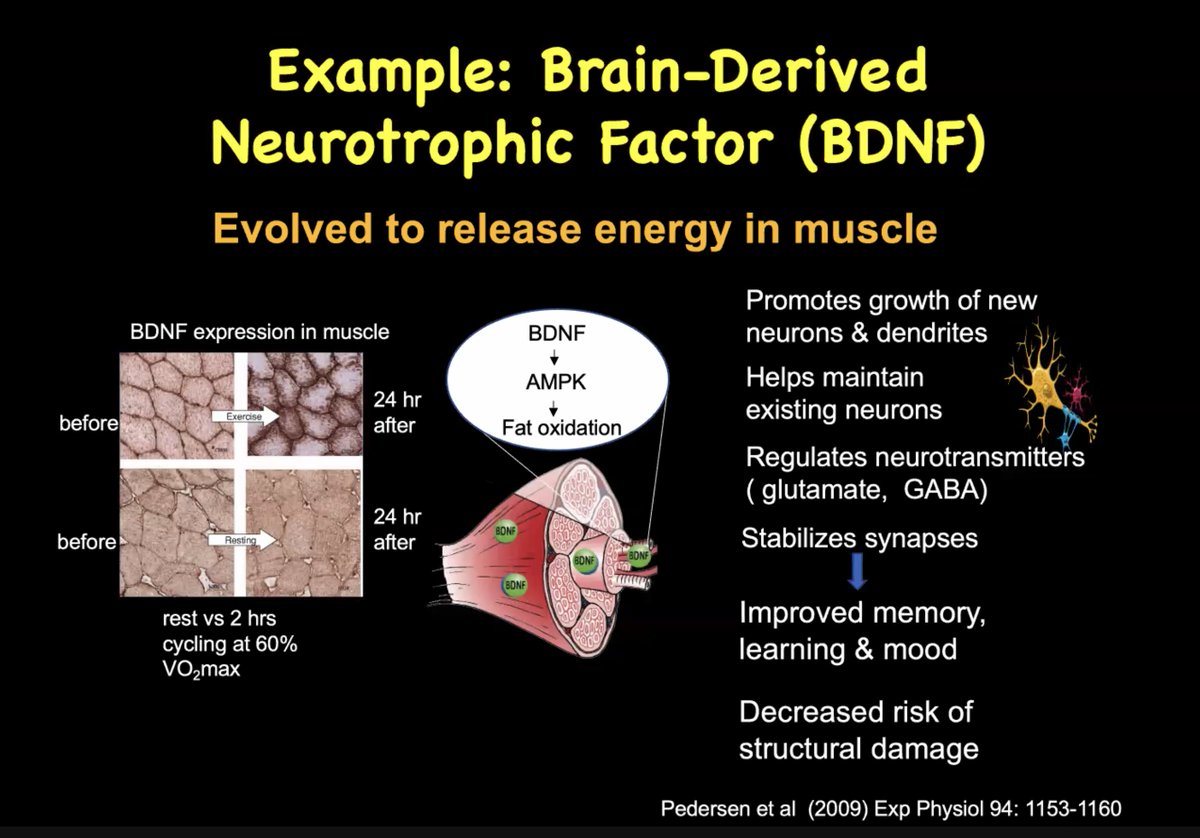

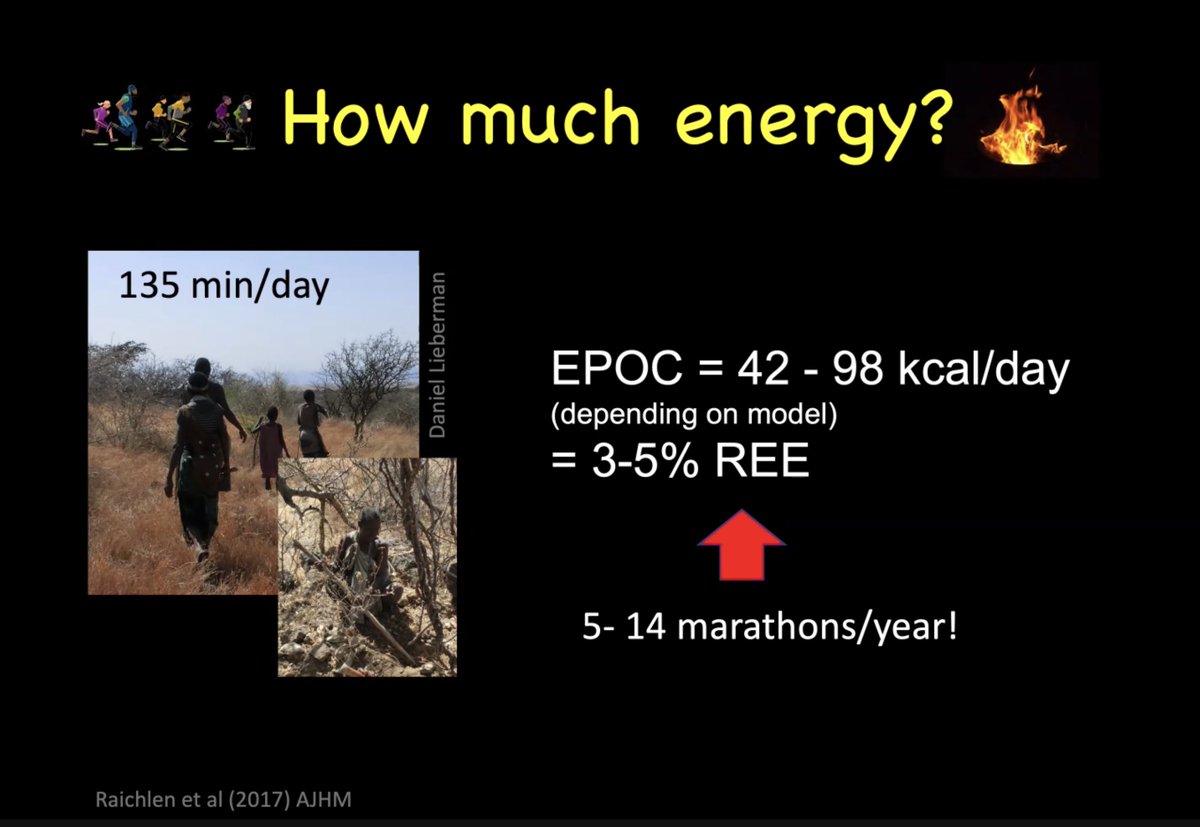
@Harvard "I'd like to get some #chimpanzees and get them to #exercise every day...I can't do that because it's unethical, but also they can't sweat, they don't have the right #muscle #physiology..."
Daniel Lieberman, @Harvard
SFI Colloquium, streaming now:


Daniel Lieberman, @Harvard
SFI Colloquium, streaming now:
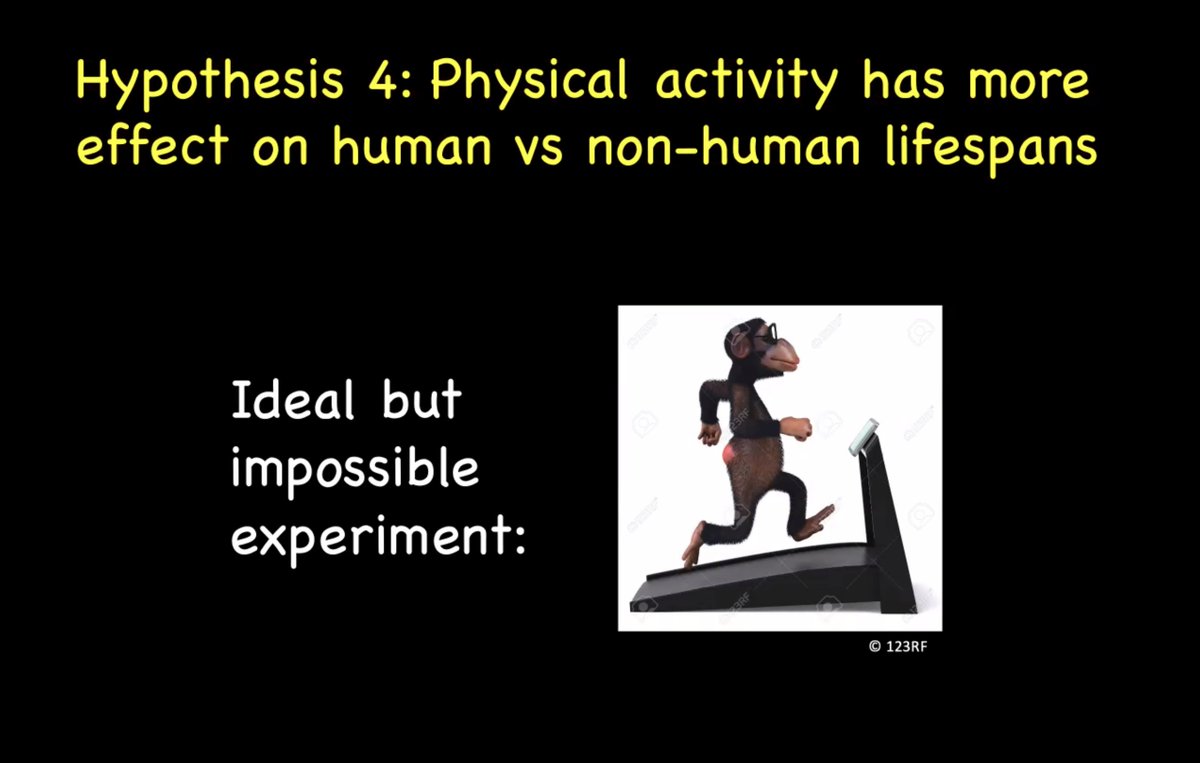

"If you thought physical activity was the thing that helped you do better, then wild animals would do better...but #zoo #animals do better."
Daniel Lieberman, @Harvard
SFI Colloquium, streaming now:


Daniel Lieberman, @Harvard
SFI Colloquium, streaming now:
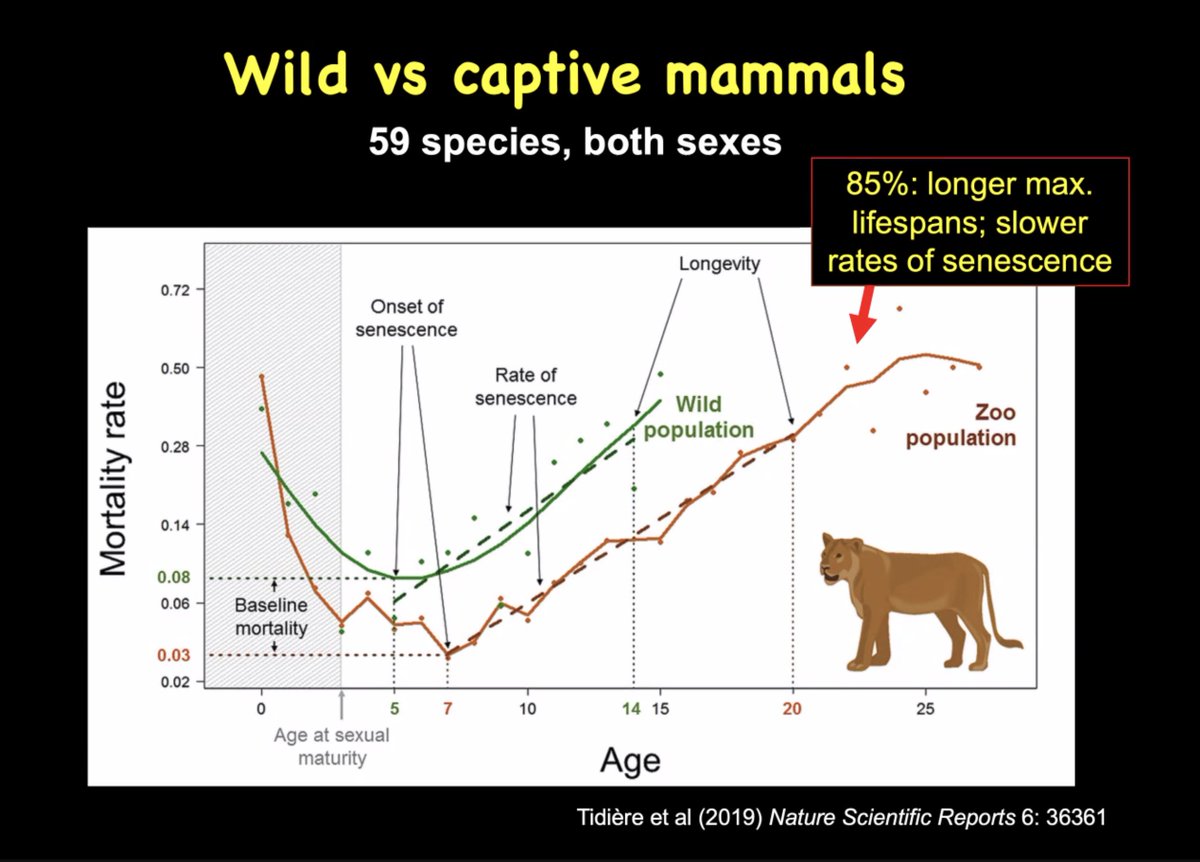

"#Cancer is basically a byproduct of multicellular life. As soon as you have it, you have an opportunity for cells to cheat. Dinosaurs have it. But among humans, it was probably once much rarer."
Daniel Lieberman, @Harvard
SFI Colloquium, streaming now:




Daniel Lieberman, @Harvard
SFI Colloquium, streaming now:


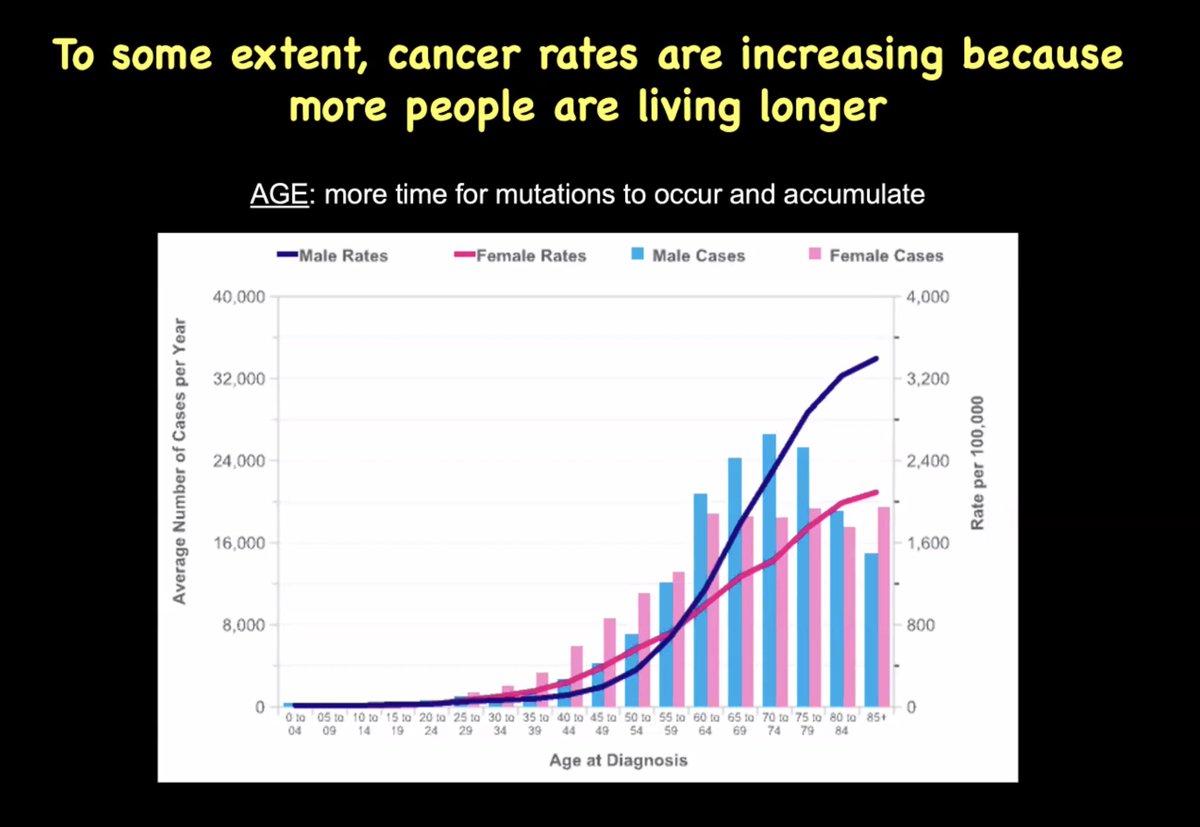

"Those cancers that tend to be energy-related are much, much higher in high-income countries. #Cancer is at least partly a disease of #energy."
Daniel Lieberman, @Harvard
SFI Colloquium, streaming now:
#exercise #physiology



Daniel Lieberman, @Harvard
SFI Colloquium, streaming now:
#exercise #physiology




"For all these reasons, it makes sense why physical activity is a completely undervalued tool for preventing #disease."
- but -
"When we tell people to #exercise, it's usually a failure."
Daniel Lieberman, @Harvard
SFI Colloquium, streaming now:



- but -
"When we tell people to #exercise, it's usually a failure."
Daniel Lieberman, @Harvard
SFI Colloquium, streaming now:

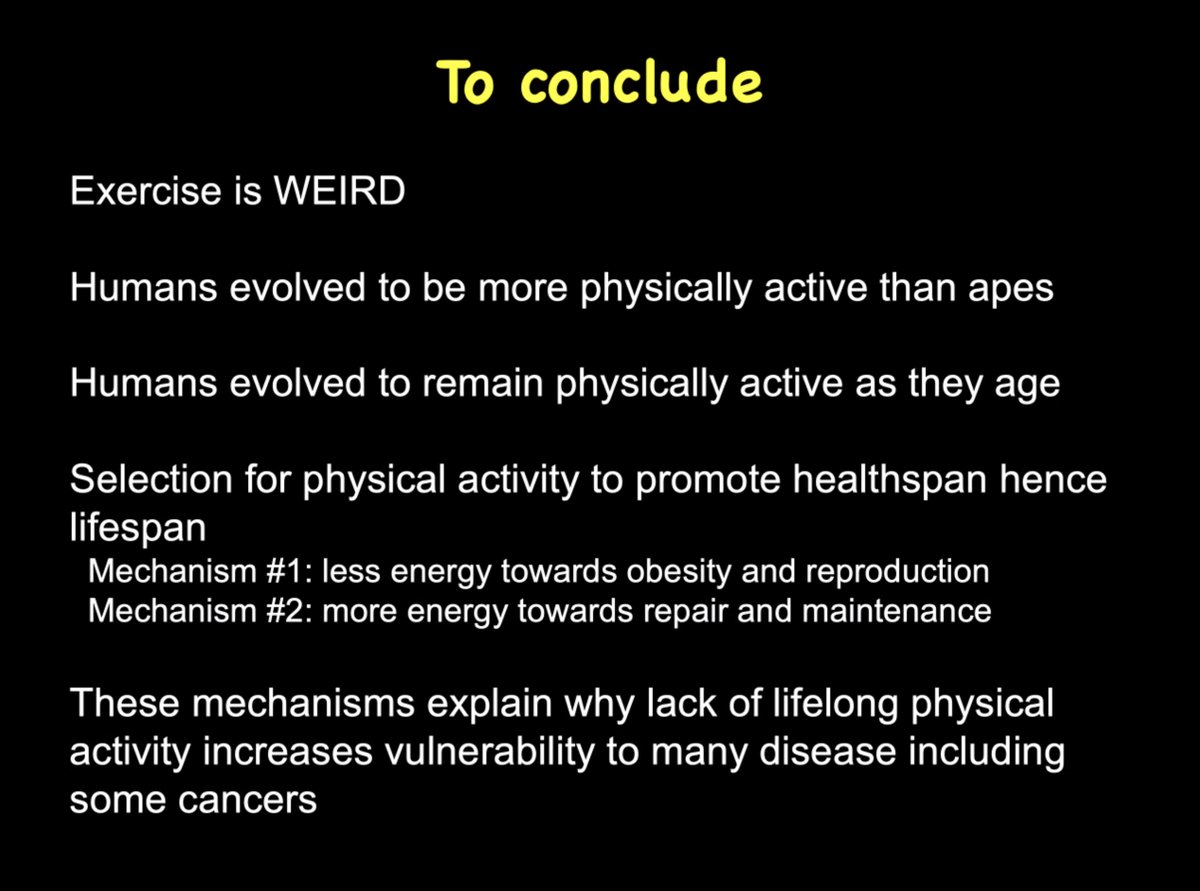

...and that's it! Thanks for tuning in. Q&A ongoing.
Full talk at the link:
Daniel Lieberman, @Harvard
(Photos: #EadweardMuybridge)
#grandparents #exercise #health #paleo #physiology
Full talk at the link:
Daniel Lieberman, @Harvard
(Photos: #EadweardMuybridge)
#grandparents #exercise #health #paleo #physiology

• • •
Missing some Tweet in this thread? You can try to
force a refresh







